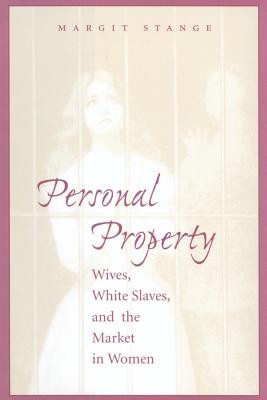
- We will send in 10–14 business days.
- Author: Margit Stange
- Publisher: Johns Hopkins University Press
- ISBN-10: 0801872545
- ISBN-13: 9780801872549
- Format: 15.3 x 22.7 x 1.3 cm, softcover
- Language: English
- SAVE -10% with code: EXTRA
Reviews
Description
In Personal Property, Margit Stange analyzes white slavery literature in relation to other key American writings of the time by Charlotte Perkins Gilman, Edith Wharton, Jane Addams, and Kate Chopin. The anthropological theory of the exchange of women developed by nineteenth-century anthropologists--in whose view, as Thorstein Veblen put it, woman is the original private property--informs white slavery depictions of racialized, enslaved female bodies. Similarly, Stange argues, this theory is reflected in literature, in journalism, and in the feminist and Progressivist reform rhetoric of the early twentieth century, when social relations were transformed by capitalist expansion. She explores Progressive Era nativist and anti-business reactions, anxieties about the seductive pull of consumerism, the "social housekeeping" movement, and women's struggle for identity and professional stature in the U.S. marketplace economy of the early twentieth century.
EXTRA 10 % discount with code: EXTRA
The promotion ends in 17d.18:23:54
The discount code is valid when purchasing from 10 €. Discounts do not stack.
- Author: Margit Stange
- Publisher: Johns Hopkins University Press
- ISBN-10: 0801872545
- ISBN-13: 9780801872549
- Format: 15.3 x 22.7 x 1.3 cm, softcover
- Language: English English
In Personal Property, Margit Stange analyzes white slavery literature in relation to other key American writings of the time by Charlotte Perkins Gilman, Edith Wharton, Jane Addams, and Kate Chopin. The anthropological theory of the exchange of women developed by nineteenth-century anthropologists--in whose view, as Thorstein Veblen put it, woman is the original private property--informs white slavery depictions of racialized, enslaved female bodies. Similarly, Stange argues, this theory is reflected in literature, in journalism, and in the feminist and Progressivist reform rhetoric of the early twentieth century, when social relations were transformed by capitalist expansion. She explores Progressive Era nativist and anti-business reactions, anxieties about the seductive pull of consumerism, the "social housekeeping" movement, and women's struggle for identity and professional stature in the U.S. marketplace economy of the early twentieth century.


Reviews